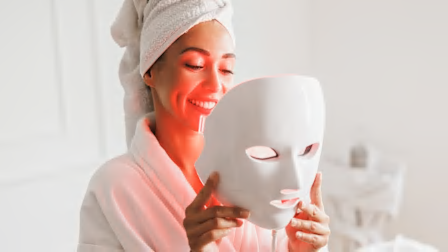Why Your Hair and Skin Care Products May Stop Working Over Time
You aren’t imagining it—your moisturizers, shampoos, and more can stop working the same way after you’ve used them for some time, but not for the reasons you think

I’m guilty of expecting new hair care and skin care products to produce life-changing results after the first application. When they don’t work fast enough, I’m buying new ones at my local K-Beauty, Sephora, or Ulta. Or worse, I’m reaching for a bottle that’s been sitting in my medicine cabinet for years, hoping the creams inside will work for me this time.
Can Your Hair and Skin Become Used to a Product?
Let’s get one thing out of the way first. Most hair and skin care products aren’t miracle workers. They need time to work, so if you aren’t seeing any improvements on Day 1 and you’re ready to jump ship, consider this from Jessica Garelik, DO, FAAD, a New York-based dermatologist. “You should generally use a skin care product for a minimum of four to six weeks to determine if it is effective,” she says. Yes, you read that right. You must consistently use a product for at least a month before seeing results.
Your hair and skin don’t get used to the products you apply to them. According to Garelik, this is a common misconception. “A number of other factors, such as product buildup on the hair, changes in your body, or issues with or storage of the product itself are more commonly responsible for the perceived change in effectiveness,” she says.
Noah Gratch, MD, FAAD, another dermatologist in New York, lists seasonal changes, product expiration dates, hormones, and stress as other possible reasons for a lack of improvement in your hair and skin after using your regular products.
Here’s a rundown from Garelik and Gratch:
Reason #1: Active Ingredients Have Degraded, or the Product Reached Its Shelf Life
When you open new products, you expose them to light, air, and different temperatures. That’s why most of them have a shelf life or Period After Opening (PAO) symbol on the label, denoted by a jar with a time frame on it. This tells you how long a product should be used after it’s opened.
Garelik says the shelf life can vary depending on the ingredients in a product, and some are more prone to losing their effectiveness over time than others. “Vitamin C serums containing L-ascorbic acid are particularly unstable and break down rapidly when exposed to air and light, reducing their antioxidant and potential brightening benefits,” she says. “Retinoids, sunscreen, [and] anti-aging products containing peptides and growth factors are other examples of products that may lose potency when exposed to heat, direct sunlight, and air.”
If you notice that a product you’ve used for a while stops working, you should inspect its texture, consistency, color, and odor for any changes, Garleik says. Those are telltale signs that it has deteriorated and shouldn’t be used anymore. To maximize a product’s effectiveness, she recommends storing it in a cool, dark place, closing it tightly after each use, and using a clean cosmetics spatula to scoop things out of jars.
Want to Keep Your Skin Care Products at a Cool Temperature?
Check out the skin care fridges we’ve tested.
Reason #2: Seasonal, Hormonal, and Lifestyle Changes Can Change Your Hair and Skin
If you find that your moisturizer fails to prevent flaky skin during certain times of the year, you’re not alone, and again, it isn’t because your skin is sick of your moisturizer. Changes in seasons, your hormones, or your lifestyle—as well as product buildup—can affect your skin in ways that can render a product that used to work well . . . well, useless. But this doesn’t mean you should run out to buy a new regimen whenever you get a new assignment at work, start exercising more often, or gear up for winter.
“I think it’s better to think of your routine as something that can be adjusted when your needs change, unless products are expiring,” Gratch says. “If you’re suddenly noticing breakouts, maybe take a step back and reflect if you’ve been under a lot of stress lately or forgetting to wash your face as often. If you’re noticing dry skin as the weather changes, allow time for your skin to adjust before switching to a more hydrating moisturizer.”
With hair, the culprit can often be product buildup. If you notice scalp irritation or dullness, Gratch recommends switching your shampoo and conditioner or adding a clarifying product to your routine.
Reason #3: Your Hair and Skin Have Improved
The final reason you may notice a change in a product’s effectiveness is that it worked! Your blemishes, wrinkles, and dry hair have improved, so the product may seem like it’s no longer doing anything. But it’s just because it already did what it was supposed to. You can’t treat dark spots where there aren’t any, or acne on acne-free skin. “With certain products,” Gratch says, “you may also notice the biggest changes early on, and see less dramatic improvement as time goes on.”
Urea might be the secret to dry, bumpy skin.
The Bottom Line
Your hair and skin aren’t tired of you using the same products for too long. In fact, patience and consistency are key to maintaining moisturized and clear skin and hair. Still, you’ve also got to be attentive to the changes that can occur when other things in your life change, like the weather, stress levels, or your hormones. If you, like me, have been saving old bottles of serums, creams, and toners to try them again in the future, consider taking some time this weekend to empty, recycle, and replace them. The chances that a 2-year-old bottle of vitamin C serum still works are low.




